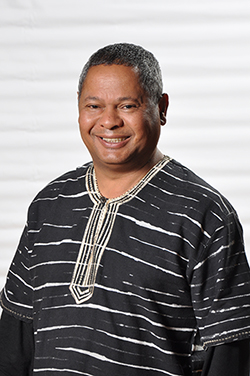Latest News Archive
Please select Category, Year, and then Month to display items
10 March 2022
|
Story Anthony Mthembu
|
Photo Unsplash
 The No Student Hungry team gearing up to start distributing food parcels to the selected students.
The No Student Hungry team gearing up to start distributing food parcels to the selected students.
The UFS is one of the many institutions of higher learning where food insecurity is an active issue. However, the
No Student Hungry Programme is one of the initiatives launched at the university to assist in fighting food insecurity at the institution.
The purpose of the programme
Since its inception in 2011, the initiative has assisted many students in acquiring a healthy meal. Additionally, the Food Environment Office also hands out food packages, so that students can continue to achieve academically. “We are trying to develop a healthy environment for students and make it easier for them to have a nice and healthy meal,” stated Annelize Visagie, who heads the Food Environment Office at the UFS. The Food Environment programme is spread out on all three campuses, each with its own facilitators. Furthermore, the programme mainly caters for students who are not funded by the National Student Financial Aid Scheme (NSFAS) but who are excelling academically. The abovementioned students apply for assistance online, and a list is then drawn up of students who receive assistance for the year.
Alternative solutions to keep the initiative running
On the Bloemfontein Campus, the No Student Hungry Programme will be catering for 200 students in the 2022 academic year, assisting them with a daily nutritious meal. Additional food parcels are also handed out to provide further assistance. “We give food parcels to the students on the list every Tuesday and Thursday at the Thakaneng Bridge,” Visagie highlighted. However, she argues that catering for the student population through this programme can be a challenge, as the demand for assistance is growing rapidly and the ability to assist is limited. The programme relies on partnerships and sponsors to assist the student body. In fact, the coordinators of the programme currently have a memorandum of understanding with Tiger Brands according to which they deliver around 100 food parcels for distribution.
In addition, the coordinators have put in place alternative measures to ensure that they can provide more food to students. “The
Kovsie Act Office, in partnership with the
Department of Sustainable Food Systems and Development, has started a food garden where healthy and nutritious produce are grown, in order to add value to the distribution,” she indicated. Although the programme can only assist to a point, students who are in desperate need of assistance are never turned away. In fact, the
Social Support Unit at Thakaneng Bridge usually assists students with food vouchers for a maximum of four days.
A commitment to teaching healthy eating habits
The programme is not only committed to curbing food insecurity, but also to ensuring that students have a healthy and balanced diet. As such, a booklet is being issued by the
Department of Nutrition and Dietetics in collaboration with the Department of Sustainable Food Systems and Development, which contains ways in which students can make a healthy meal using some of the ingredients offered in the food parcels.
“We want to teach students how to eat healthy in the cheapest way, because they don’t have a lot of money to buy expensive food products,” Visagie argued.
Prof Andre Keet to chair Ministerial Oversight Committee on Transformation
2017-07-14

Prof Andre Keet
Photo: Stephen Collet
Higher Education Minister Dr Blade Nzimande has increased from seven to 10 the number of members of the Ministerial Oversight Committee on the Transformation in the South African Public Universities.
In a government gazette published on 7 July 2017‚ Dr Nzimande appointed new members of the committee for a three-year term to be chaired by Prof Andre Keet, Director of the Institute for Reconciliation and Social Justice at the University of the Free State (UFS). Prof Keet is a returning member of the committee alongside former University of Fort Hare chancellor Dr Mvuyo Tom.
The purpose of the Ministerial Oversight Committee on Transformation in South African Public Universities is to monitor progress on transformation in public universities‚ serve as an expert advisory body and provide independent and external advice to the minister and the department.
The committee has been given 11 tasks‚ chief of which is to study and evaluate transformation plans and charters of all universities. It is mandated to use this exercise as a basis for the development of a sectoral transformation charter. It is also tasked with reviewing the annual reports of institutions on transformation and producing an annual report on the state of transformation in the higher education sector.
Prof Keet’s appointment comes at a pivotal time when transformation at universities has been at the heart of many debates in universities, government and broader society. Prof Keet said: “It is an honour and privilege to serve the sector at this level and in this capacity.”
The university is proud to have in its ranks a leader of such calibre who has also spearheaded transformation initiatives at the UFS through the Institute for Reconciliation and Social Justice over the past six years.